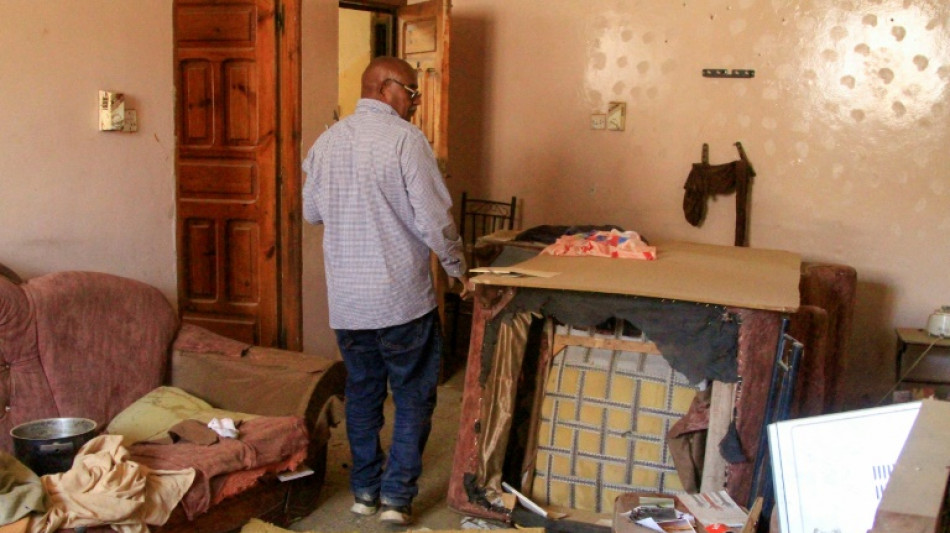
-
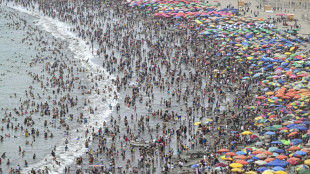 One of Lima's top beaches to close Sunday over pollution
One of Lima's top beaches to close Sunday over pollution
-
'Nothing is impossible': Shaidorov shocks favourite Malinin to make history

-
 Malinin wilts at Olympics as Heraskevych loses ban appeal
Malinin wilts at Olympics as Heraskevych loses ban appeal
-
Bhatia joins Hisatsune in Pebble Beach lead as Fowler surges

-
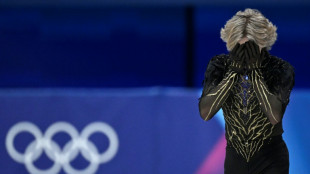 Malinin meltdown hands Shaidorov Olympic men's figure skating gold
Malinin meltdown hands Shaidorov Olympic men's figure skating gold
-
Top seed Fritz makes ATP Dallas semis with fantastic finish

-
 Patriots star receiver Diggs pleads not guilty to assault charges
Patriots star receiver Diggs pleads not guilty to assault charges
-
Havana refinery fire under control as Cuba battles fuel shortages
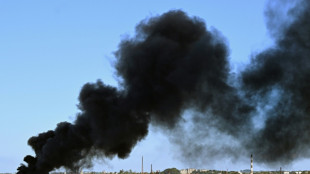
-
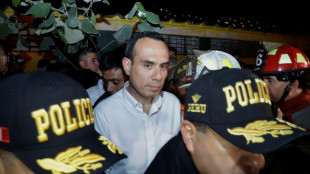 Peru Congress to debate impeachment of interim president on Tuesday
Peru Congress to debate impeachment of interim president on Tuesday
-
Snowboard veteran James targets 2030 Games after Olympic heartbreak

-
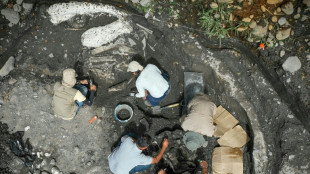 Costa Rica digs up mastodon, giant sloth bones in major archaeological find
Costa Rica digs up mastodon, giant sloth bones in major archaeological find
-
Trump says change of power in Iran would be 'best thing'

-
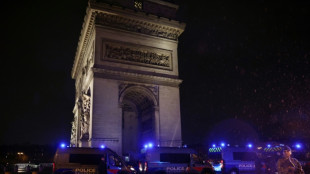 Paris police shoot dead knife man at Arc de Triomphe
Paris police shoot dead knife man at Arc de Triomphe
-
Japan's Totsuka wins Olympic halfpipe thriller to deny James elusive gold

-
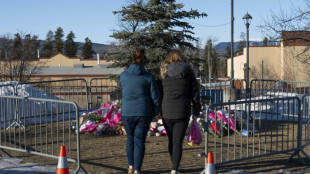 Canada's PM due in mass shooting town as new details emerge
Canada's PM due in mass shooting town as new details emerge
-
Neto treble fires Chelsea's FA Cup rout of Hull

-
 Arbitrator rules NFL union 'report cards' must stay private
Arbitrator rules NFL union 'report cards' must stay private
-
Dortmund thump Mainz to close in on Bayern

-
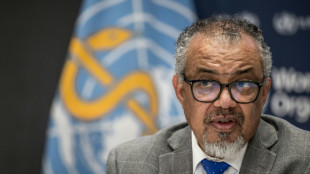 WHO sets out concerns over US vaccine trial in G.Bissau
WHO sets out concerns over US vaccine trial in G.Bissau
-
Skeleton racer Weston wins Olympic gold for Britain

-
 Ex-CNN anchor pleads not guilty to charges from US church protest
Ex-CNN anchor pleads not guilty to charges from US church protest
-
Berlin premiere for pic on jazz piano legend Bill Evans

-
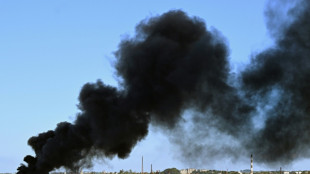 Fire at refinery in Havana as Cuba battles fuel shortages
Fire at refinery in Havana as Cuba battles fuel shortages
-
A Friday night concert in Kyiv to 'warm souls'

-
 PSG stunned by rampant Rennes, giving Lens chance to move top
PSG stunned by rampant Rennes, giving Lens chance to move top
-
Japan's Totsuka wins Olympic halfpipe thriller as James misses out on gold

-
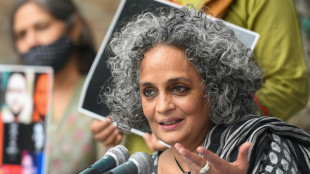 Indian writer Roy pulls out of Berlin Film Festival over Gaza row
Indian writer Roy pulls out of Berlin Film Festival over Gaza row
-
Conflicts turning on civilians, warns Red Cross chief
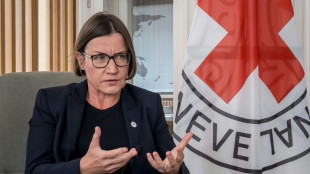
-
 Europe calls for US reset at security talks
Europe calls for US reset at security talks
-
Peru leader under investigation for influence peddling
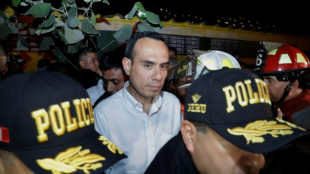
-
 Rising star Mboko sets up Qatar Open final against Muchova
Rising star Mboko sets up Qatar Open final against Muchova
-
Canada PM to mourn with grieving town, new details emerge on shooter
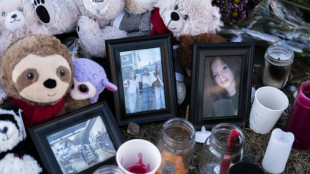
-
 US waives Venezuela oil sanctions as Trump says expects to visit
US waives Venezuela oil sanctions as Trump says expects to visit
-
NBA star Chris Paul retires at age 40 after 21 seasons

-
 WTO chief urges China to shift on trade surplus
WTO chief urges China to shift on trade surplus
-
Vonn hoping to return to USA after fourth surgery on broken leg

-
 Trump sending second aircraft carrier to pile pressure on Iran
Trump sending second aircraft carrier to pile pressure on Iran
-
Heraskevych loses Olympics disqualification appeal, Malinin eyes second gold
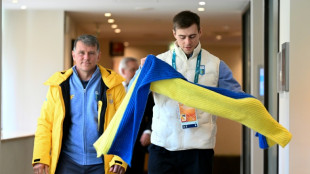
-
 Mercedes have 'taken a step back': Russell
Mercedes have 'taken a step back': Russell
-
Madagascar cyclone death toll rises to 40, water, power still out
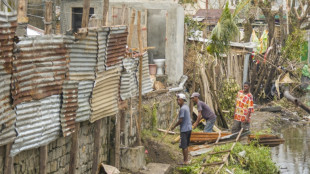
-
 Earl says England inspired by last year's Calcutta Cup
Earl says England inspired by last year's Calcutta Cup
-
USA romp past Dutch in T20 World Cup to keep Super Eight hopes alive

-
 De Minaur scraps past local legend van de Zandschulp
De Minaur scraps past local legend van de Zandschulp
-
Ukrainian Heraskevych loses appeal against Olympics disqualification
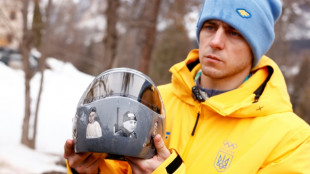
-
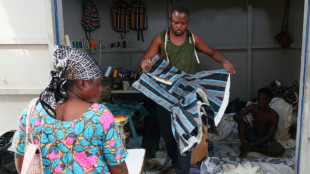 Ghana rallies round traditional tunic after foreign mockery
Ghana rallies round traditional tunic after foreign mockery
-
Forest set to hire former Wolves boss Pereira: reports

-
 England rugby captain Itoje slams Ratcliffe's 'ridiculous' immigration comments
England rugby captain Itoje slams Ratcliffe's 'ridiculous' immigration comments
-
Europe should speak to Russia with 'one voice', Putin foe says
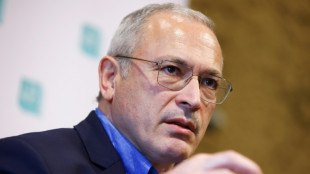
-
 US Congress impasse over immigration set to trigger partial shutdown
US Congress impasse over immigration set to trigger partial shutdown
-
US to deploy new aircraft carrier to Middle East as Trump warns Iran
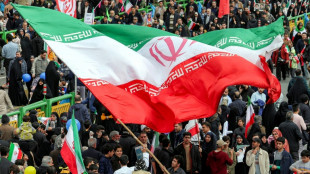

'War has taken everything': AFP reporter returns home to Khartoum
It had been nearly two years since AFP journalist Abdelmoneim Abu Idris Ali set foot in his home in war-torn Khartoum, after the sound of children playing in the street gave way to the fearsome fire of machine guns.
Sudan's once-peaceful capital awoke to the sound of bombs and gunfire on April 15, 2023 as war broke out between its two most powerful generals -- army chief Abdel Fattah al-Burhan and his former deputy Mohamed Hamdan Daglo, who commands the paramilitary Rapid Support Forces (RSF).
Bombs tore through homes, fighters took over the streets and hundreds of thousands scrambled to escape -- among them Abdelmoneim, his wife, his son and three daughters.
Since then they have been displaced five times -- fleeing each time the front line closed in.
Eventually the 59-year-old journalist sent his family to safety in another African country while he settled down to work alone from Port Sudan on the Red Sea.
Then last month he was able to briefly return to his home in Khartoum North during a reporting trip escorted by the army after it recaptured the city.
He found his beloved neighbourhood, known as Bahri, abandoned.
"The whole place is cloaked in silence, no grocery store chit-chats, no boisterous games of football on the corner, nothing," he said.
- 'Like an earthquake' -
"The last time I was here, the neighbours were all in the street saying goodbye, praying for each other's safety, promising we would meet again soon."
Now their doors hung ajar, beds dragged out onto the street, apparently by RSF fighters who used them to sleep in the open air.
Since the war broke out, the paramilitaries have been notorious for taking over and looting homes, selling the contents or taking it for themselves.
When he got to his landing, Abdelmoneim braced himself for what he would find inside.
"It was like an earthquake had hit. The furniture was upside-down and thrown around, pieces shattered on the ground," he said.
He clambered slowly from room to room, taking in the damage.
The couch was pocked with burn marks where the fighters had put out cigarette after cigarette.
His daughters' closets were ripped open and emptied of every last dress.
And on the floor of his office, lying among the tattered remains of his library, was a photo of his wedding to his wife Nahla, with her image torn out.
"I don't get what they have against my books and my wedding photos," he said.
"I knew they had stolen furniture. I couldn't imagine they would destroy everything else."
- 'Wish my kids had never seen that' -
In March, the army recaptured Khartoum, to the joy of millions of displaced Sudanese anxious to return to their homes.
"But my girls say they never want to come back," Abdelmoneim said.
"How can they ever forget sleeping huddled together in the living room, terrified by the sound of every air strike?"
Abdelmoneim shudders at the thought of the horrors they have seen since.
"When we were leaving Khartoum, there were bodies lying in the street and an old man standing over them, trying to keep a plastic sheet in place.
"When I stopped to ask him if he was okay, he said, 'I'm trying to keep the dogs away.' I wish my kids had never heard that."
For seven months, Abdelmoneim tried to wait out the fighting in Wad Madani, just south of Khartoum, hoping against hope they could go home.
"The moment I realised this wouldn't end for years was when the war came to Wad Madani," he said.
Again they took everything they could carry, and again they joined a wave of hundreds of thousands of people running away, this time on foot, heading east.
The veteran journalist and his wife made the painful choice to separate the family -- she and the children would go to another country; and he would go to Port Sudan on the Red Sea, home to the United Nations, the army-aligned government and hundreds of thousands of displaced people.
- Destitution and displacement -
Abdelmoneim, like countless Sudanese caught in the war's crossfire, has lost family members, his life savings and any hope for the future.
"This war has taken everything from us," he said.
"And everything they haven't taken, they've destroyed."
For years he had been building up a tiny homestead on the outskirts of Khartoum, lined with fruit trees and a few simple crops he could tend when he retired. The RSF destroyed it in their rampage.
His family's home and land, in the agricultural state of Al-Jazira, were looted and cut off from power and water -- his relatives left starving and powerless to defend themselves against the RSF's predations.
Now both Al-Jazira and Khartoum are under army control but the war, and the suffering it has wrought, is far from over.
Tens of thousands have been killed and more than 12 million uprooted, including almost four million who fled to other countries.
Hundreds of thousands are returning to areas recaptured by the army, choosing destitution at home over displacement, but most of these areas still lack clean water, electricity and health care.
Famine still stalks Sudan, with around 638,000 people already in famine and eight million on the brink of mass starvation.
The country remains divided, and the RSF -- in control of nearly all of the western region of Darfur and, with its allies, parts of the south -- has not given up the fight.
In recent weeks, the paramilitaries have killed hundreds of people in famine-stricken displacement camps, while RSF chief Daglo has announced a rival administration to rule over the ashes.
For many like Abdelmoneim, even their modest dreams now seem impossible.
"If this war ends tomorrow, all I want is to be somewhere quiet and safe with my family, farming in peace."
Ch.Havering--AMWN



